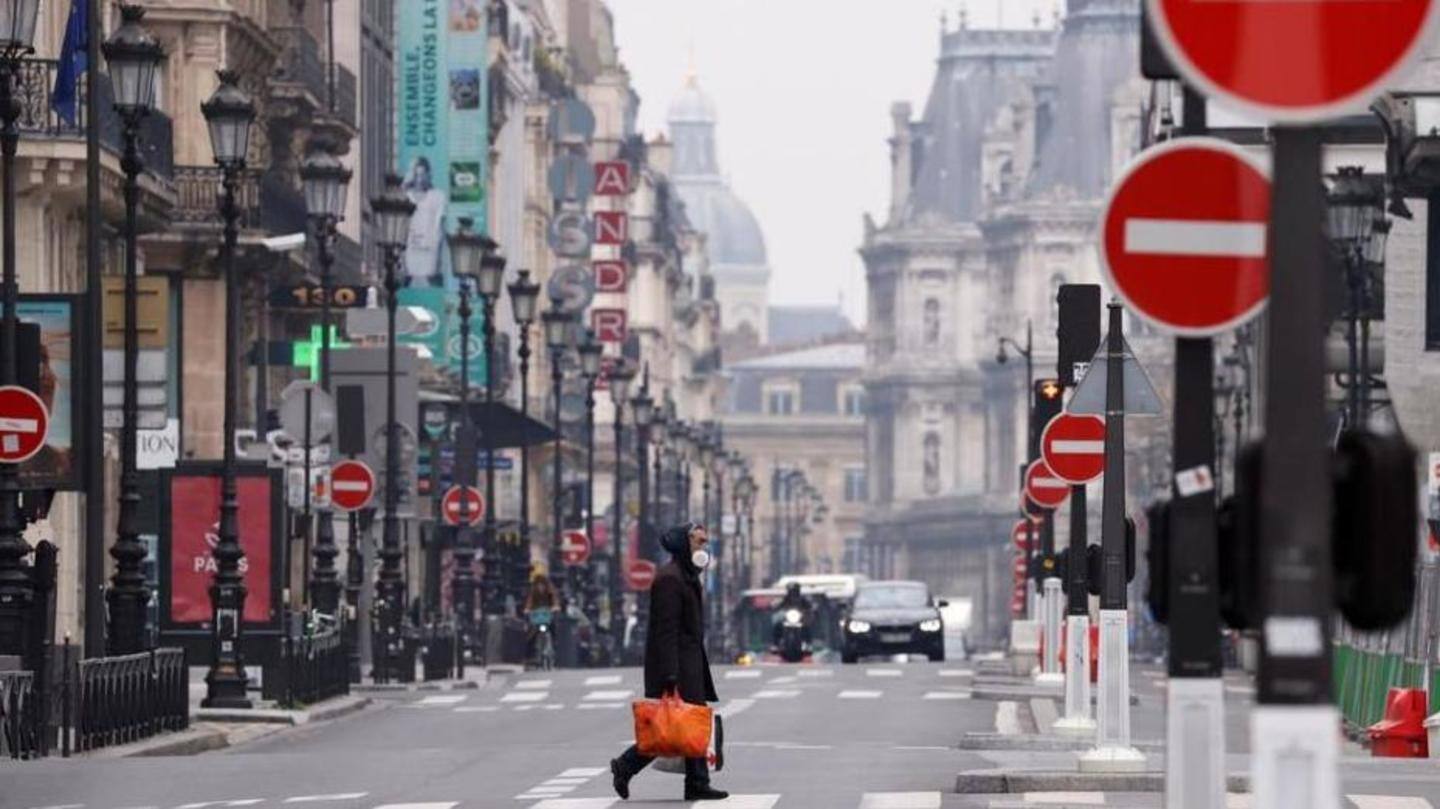
Tougher travel rules to contain spread of COVID-19 in UK
What's the story
The United Kingdom's new travel rules to contain the spread of COVID-19 variants came into effect from Monday, involving compulsory hotel quarantines for anyone returning there from one of the 33 high-risk "red-list" countries.
Those who have not visited a "red-list" country, such as India, must still quarantine for 10 days and complete two mandatory tests on the second and eighth day after arriving.
New rules
Monetary penalty for failure to quarantine, lying about travel history
Those arriving from the "red-list" countries will have to pre-book and pay £1,750 to spend 10 days quarantining in government-sanctioned hotels, covering the cost of the hotel, transport, and two separate tests post-arrival.
Failing to quarantine, people can be fined up to £10,000, while lying about having visited a country on the red list invites a prison sentence of up to 10 years.
Statement
New rules will bolster security against new variants: Hancock
"With the emergence of new variants, we must go further. The rules coming into force today will bolster the quarantine system and provide another layer of security against new variants at the border," said UK Health Secretary Matt Hancock.
These new measures are important to protect the vaccination program, which has now seen 15 million people vaccinated, he added.
Procedure
Designated ports for those returning from a 'red-list' country
Starting Monday, the UK or Irish residents who have been in a high-risk destination on the UK's "red-list" comprising 33 hotspots with COVID-19 variants in circulation, will have to enter England through a designated port and must have a pre-booked quarantine package to stay at one of the quarantine facilities.
Non-residents are currently not part of the essential-only travel rules of the coronavirus lockdown.
Information
Tough measures already in place for travelers
The government said it has tough measures in place that require travelers into the UK to provide proof of a negative COVID-19 test taken no more than three days before departure. Non-UK residents from the red list countries are already banned from entering Britain.
Details
Wrong information on Passenger Locator Form will invite strict action
New regulations equipping the Border Force and police staff with the powers needed to ensure people arriving in England conform to the new rules have also been put in place.
The Border Force has the power to issue fixed penalty notices to individuals suspected of lying on their Passenger Locator Form and where necessary detain them for up to three hours.
Efforts
Those at quarantine facilities will be strictly monitored
As part of the regulations, a requirement for quarantining individuals to self-isolate in their room is set out in the law.
Visible security will be present at the Managed Quarantine Facilities to ensure that people are obeying rules.
The government has struck deals with 16 hotels so far, providing 4,963 rooms for the new quarantine system, with a further 58,000 rooms currently on standby.
Information
Hotel staff to be fully trained in COVID-19 secure practices
Passengers can book their rooms through an online portal. All hotel staff will be fully trained in COVID-19 secure practices, and all contractors have been instructed to ensure their facilities and services are provided in a COVID-19 secure way. This includes plastic shields and PPE.
Details
Heathrow Airport expected to receive most passengers
Heathrow Airport is one of five in England where people requiring hotel quarantine can enter and is expected to receive the largest number of passengers. Others are Gatwick, London City, Birmingham, and Farnborough.
The devolved regions are also following similar rules for arrivals from red-list countries, which include countries that have shown a high occurrence of new coronavirus variants such as South Africa.
Information
UK is currently under strict lockdown
Non-essential travel remains banned under the UK's strict lockdown to contain the very high coronavirus infection rate as the vaccination program is accelerated. There are reports that anyone leaving the UK will soon be questioned about their reason for travel.